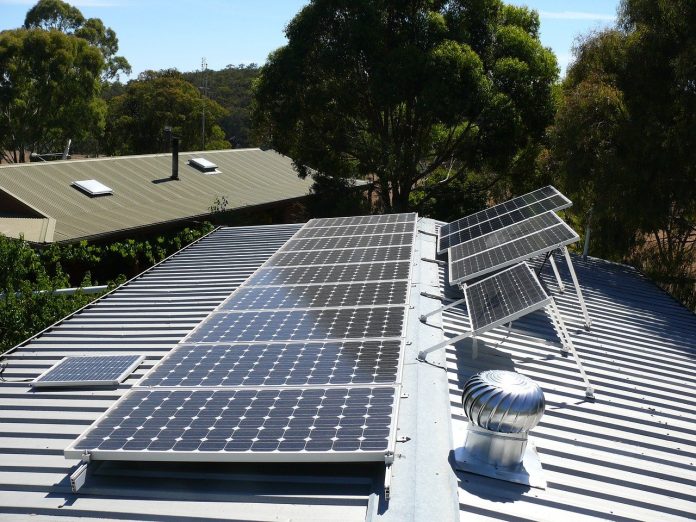What is a Shed Solar Panel?
A shed solar panel is a photovoltaic panel installed on the roof of a shed, designed to capture sunlight and convert it into usable solar energy. Typically, sheds serve as storage or workspace; equipping them with solar panels transforms these spaces into efficient sources of clean, renewable electricity, contributing to energy savings and environmental benefits.
Shed Solar Panel Benefits
Installing a shed solar panel offers numerous advantages, including:
- Increased Property Value: Incorporating renewable energy solutions like shed solar panels can boost your property’s market value. Studies reveal homes with solar installations often sell up to 20% faster and fetch approximately 17% higher prices than comparable properties without solar.
- Lower Energy Costs: Shed solar panels reduce dependence on the grid by generating your own electricity, which leads to significant savings on monthly utility bills.
- Enhanced Sustainability: Solar panels contribute to reducing your carbon footprint, supporting environmental conservation through sustainable energy practices.
- Tax Incentives: Many federal and state programs offer tax credits and rebates for solar panel installations, helping offset upfront costs.
- Zero Emissions: Solar energy production emits no greenhouse gases, helping combat air pollution and climate change.
- Home Value Appreciation: Beyond savings, solar installations often increase your home’s resale value, making it a smart long-term investment.
- Energy Independence: Solar energy is an inexhaustible resource, enabling you to reduce reliance on utility providers.
- Quiet Operation: Unlike generators, solar panels operate silently, preventing noise pollution.
- Low Maintenance: Once installed, solar panels require minimal upkeep—generally just periodic cleaning and occasional system checks.
- Versatility: Solar panels can be used for electricity generation, water heating, or supporting cooling systems, making them adaptable to various needs.
Drawbacks of Shed Solar Panels
While shed solar panels offer many benefits, there are some considerations to keep in mind:
- Initial Cost: Shed solar panel systems require a significant upfront investment covering the shed, solar panels, wiring, and installation components.
- Maintenance Needs: Although minimal, solar panels require expert installation and periodic maintenance. Solar batteries typically need replacement every 5–10 years, but battery replacement costs have been decreasing steadily, with many options readily available online.
How to Install a Shed Solar Panel?
To install a shed solar panel system, start by consulting a certified solar installer who can assess your energy needs, site suitability, and system design. Ensure your shed roof has adequate space and receives ample sunlight.
Installation involves mounting the solar panels securely on the shed roof and connecting them to a power inverter, which converts the generated direct current (DC) into alternating current (AC) usable by your home’s electrical system.
Additionally, check with your local utility provider about net metering policies. Net metering enables you to feed surplus energy back to the grid, earning credits and further reducing your electricity bills.
How Much Do Shed Solar Panels Cost?
The price of shed solar panel systems usually ranges from $6,000 to $20,000, depending on factors like panel size, type, and installation complexity. Fortunately, various federal and state incentives, such as the Investment Tax Credit (ITC), can substantially reduce these costs.
Before making a decision, weigh the upfront expenses against the long-term savings and environmental benefits. Exploring available options and incentives will help you choose the best solar solution for your shed.
If rooftop solar panels are beyond your current budget, consider alternative green energy providers. Numerous clean energy plans from reputable companies are available for residential use, providing sustainable power options without installation.
Conclusions
Read more: What Is LED Light Strip? Top 12 Best Methods about How to Install LED Light Strip?
Shed solar panels convert sunlight into electricity to power your home and devices, bringing both ecological and economic benefits. While the initial investment may be significant, the long-term returns—energy savings, increased property value, and reduced carbon emissions—make shed solar panels a smart, sustainable choice for homeowners.
Frequently Asked Questions (FAQs)
Solar panels typically cost between $6,000 and $20,000, varying based on size and model. Available federal and state incentives often help lower this price.
Benefits include reduced grid dependence, silent operation, low upkeep, and versatility for electricity, water heating, or cooling applications.
A solar battery stores excess energy produced during sunny periods for later use, ensuring power availability even when the sun is down.
Net metering allows you to send surplus solar-generated energy back to the grid, earning credits that offset energy consumption at other times.
While DIY installation is possible, hiring a professional installer ensures optimal system placement and safe, efficient electrical integration.
Common renewable energy sources include geothermal, hydroelectric, wind, and solar power. Solar panels harness sunlight, a free and unlimited resource, to reduce costs and environmental impact.
Additionally, if you want to learn more about Reasons to Invest in Solar Attic Fans, visit our Interior Design category for comprehensive information and guidance.
Why Investing in Shed Solar Panels Makes Sense in 2024
As renewable energy technologies advance, shed solar panels have become more efficient and affordable than ever before. In 2024, increasing electricity rates and growing environmental awareness make installing solar panels on your shed a practical investment for homeowners seeking sustainability and cost savings. Innovations in panel design and battery storage provide greater energy independence, while utility companies increasingly support net metering programs, maximizing your solar return on investment. Whether you want to power garden tools, lighting, or supplement household energy needs, shed solar panels offer versatile, eco-friendly solutions for everyday use.

























